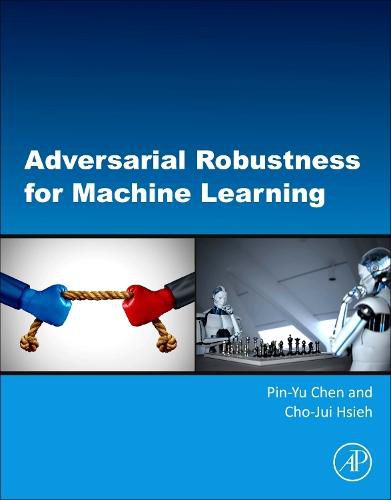Readings Newsletter
Become a Readings Member to make your shopping experience even easier.
Sign in or sign up for free!
You’re not far away from qualifying for FREE standard shipping within Australia
You’ve qualified for FREE standard shipping within Australia
The cart is loading…






Adversarial Robustness for Machine Learning summarizes the recent progress on this topic and introduces popular algorithms on adversarial attack, defense and veri?cation. Sections cover adversarial attack, veri?cation and defense, mainly focusing on image classi?cation applications which are the standard benchmark considered in the adversarial robustness community. Other sections discuss adversarial examples beyond image classification, other threat models beyond testing time attack, and applications on adversarial robustness. For researchers, this book provides a thorough literature review that summarizes latest progress in the area, which can be a good reference for conducting future research.
In addition, the book can also be used as a textbook for graduate courses on adversarial robustness or trustworthy machine learning. While machine learning (ML) algorithms have achieved remarkable performance in many applications, recent studies have demonstrated their lack of robustness against adversarial disturbance. The lack of robustness brings security concerns in ML models for real applications such as self-driving cars, robotics controls and healthcare systems.
$9.00 standard shipping within Australia
FREE standard shipping within Australia for orders over $100.00
Express & International shipping calculated at checkout
Adversarial Robustness for Machine Learning summarizes the recent progress on this topic and introduces popular algorithms on adversarial attack, defense and veri?cation. Sections cover adversarial attack, veri?cation and defense, mainly focusing on image classi?cation applications which are the standard benchmark considered in the adversarial robustness community. Other sections discuss adversarial examples beyond image classification, other threat models beyond testing time attack, and applications on adversarial robustness. For researchers, this book provides a thorough literature review that summarizes latest progress in the area, which can be a good reference for conducting future research.
In addition, the book can also be used as a textbook for graduate courses on adversarial robustness or trustworthy machine learning. While machine learning (ML) algorithms have achieved remarkable performance in many applications, recent studies have demonstrated their lack of robustness against adversarial disturbance. The lack of robustness brings security concerns in ML models for real applications such as self-driving cars, robotics controls and healthcare systems.